Connect with Top Computer Science Professors on Twitter
These top computer science professors are active researchers who have authored articles or books on foundational industry concepts such as human-computer interaction and cyberinfrastructures. A number of these professors study artificial intelligence and social interaction via computers, while others specialize in areas including data management, social issues, and computational photography.
Several are leaders at their respective schools, while some participate in private business or in activities advancing the research and application of computer science across industries. All are involved and engaged on Twitter.
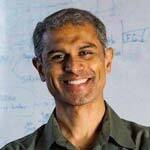
Dr. Hari Balakrishnan is a professor of computer science at MIT’s Department of Electrical Engineering and Computer Science and is a director of MIT's Center for Wireless Networks and Mobile Computing. His research focuses on networked computer systems.
Dr. Balakrishnan’s research interests focus on topics including networking, sensing, and perception for sensor-equipped mobile devices connected to cloud or edge services running in data centers. Additionally, he has contributed to extensive research advancing the fields of mobile and sensor computing, internet transport and routing, overlay networks and P2P systems, and data management.
Dr. Balakrishnan’s career includes working on issues such as the CarTel mobile sensing system, the RON overlay network, the Chord distributed hash table, the Internet congestion manager, several congestion control methods, low-latency data center networks, verifiable Internet routing, and wireless TCP. His work is recognized across the industry and cited regularly by new and prominent computer science academics.
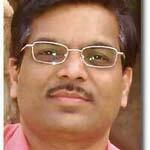
A Redmond Barry distinguished professor and director of the Cloud Computing and Distributed Systems (CLOUDS) Laboratory at the University of Melbourne, Australia, Dr. Rajkumar Buyya also serves as the founding CEO of Manjrasoft. Manjrasoft is a spin-off company tangential to the University, commercializing innovations in Cloud Computing.
Dr. Buyya has also previously served as a Future Fellow of the Australian Research Council from 2012 to 2016 and has authored over 625 publications and seven textbooks. One of his best-known works is Mastering Cloud Computing published by McGraw Hill, China Machine Press, and Morgan Kaufmann for Indian, Chinese, and other international markets.
Dr. Buyya is a highly cited author in computer science and software engineering fields globally, both considering field rating and citation evaluations in the area of Distributed and Parallel Computing.
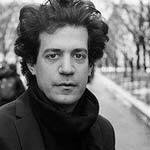
Dr. Constantinos Daskalakis is a professor of electrical engineering and computer science at MIT’s Department of Electrical Engineering and Computer Science, and he holds a diploma in electrical and computer engineering from the National Technical University of Athens, as well as a PhD in electrical engineering and computer science from UC Berkeley.
Dr. Daskalakis’ work focuses on computation theory and its interface with game theory, economics, probability theory, machine learning, and statistics. Through his research, he has resolved long-standing open problems about the computational complexity of Nash equilibrium and the mathematical structure and computational complexity of multi-item auctions. Currently, Dr. Daskalakis’ work focuses on high-dimensional statistics and learning from biased, dependent, or strategic data.
Across his career, he received the ACM Doctoral Dissertation Award, the Kalai Prize from the Game Theory Society, the Sloan Fellowship in Computer Science, the SIAM Outstanding Paper Prize, the Microsoft Research Faculty Fellowship, the Simons Investigator Award, the Rolf Nevanlinna Prize from the International Mathematical Union, the ACM Grace Murray Hopper Award, and the Bodossaki Foundation Distinguished Young Scientists Award.

A professor of electrical engineering and computer science at the Massachusetts Institute of Technology, and a member of the Computer Science and Artificial Intelligence Laboratory (CSAIL), Dr. Fredo Durand received his PhD from Grenoble University, France. His mentors at the time included Claude Puech and George Drettakis.
In his current work, Dr. Durand observes both synthetic image generation and computational photography, where new algorithms afford powerful image enhancement and the design of imaging systems that can record richer information about a scene. His research interests address most aspects of picture generation and creation, from rendering to computational photography.
In his work, Dr. Durand works on differentiable rendering, compilers for high-performance imaging, and video magnification. Additionally, he serves on the scientific advisory board of Mercari, light.co, Shaper Tools, and his work is highly recognized and cited by his peers and emerging scholars.

Dr. Ian Foster is the director of the Computation Institute, a joint organization of the University of Chicago and Argonne National Laboratory. He is also an Argonne senior scientist, as well as a distinguished fellow and the Arthur Holly Compton distinguished service professor of computer science at the University of Chicago.
Dr. Foster’s degrees include a BSc from the University of Canterbury, New Zealand and a PhD from Imperial College, United Kingdom—both in computer science. His research interests deal with distributed, parallel, and data-intensive computing technologies, including innovative applications of those technologies to scientific problems in such domains as climate change and biomedicine. The methods and software developed under Dr. Foster’s leadership serve as the foundation for many large national and international cyberinfrastructures.
Additionally, Dr. Foster holds positions as a fellow of the American Association for the Advancement of Science, the Association for Computing Machinery, and the British Computer Society. Awards he has received for his contributions include the Global Information Infrastructure (GII) Next Generation award, the British Computer Society’s Lovelace Medal, R&D Magazine’s Innovator of the Year, and an honorary doctorate from the University of Canterbury, New Zealand. He was also a co-founder of Univa UD, Inc., a company established to deliver grid and cloud computing solutions.

Dr. Amy J. Ko is a professor at the University of Washington Information School and an adjunct professor at UW’s Paul G. Allen School of Computer Science and Engineering. She directs the Code & Cognition Lab, where her research focuses on the human aspects of programming.
Dr. Ko’s earliest work included techniques for automatically answering questions about program behavior to support debugging, program understanding, and reuse. Later in her career, her work studied interactions between developers and users, and techniques for web-scale aggregation of user intent through help systems. She later co-founded AnswerDash to commercialize these ideas. Her latest research investigates effective, equitable, scalable ways for humanity to learn computing, including programming languages, APIs, programming strategies, design, and machine learning.
Dr. Ko’s work exists in over 100 peer-reviewed publications, with 11 of these papers receiving best paper awards and four receiving most influential paper awards. She holds membership in several prominent organizations, including the Association of Computing Professionals (ACM), the ACM Special Interest Group on Computer-Human Interaction (SIGCHI), the Special Interest Group on Computer Science Education (SIGCSE), and the Special Interest Group on Software Engineering (SIGSOFT).
Dr. Ko received degrees including a PhD at the Human-Computer Interaction Institute at Carnegie Mellon University, as well as degrees in computer science and psychology with honors from Oregon State University.

Dr. Yann LeCun is director of AI research at Facebook, and a silver professor of data science, computer science, neural science, and electrical engineering at New York University, affiliated with the NYU Center for Data Science, the Courant Institute of Mathematical Science, the Center for Neural Science, and the Tandon School of Engineering.
Dr. LeCun has an electrical engineer diploma from Ecole Superieure d'Ingenieurs en Electrotechnique et Electronique (ESIEE) and a PhD in computer science from Universite Pierre et Marie Curie. His current research interests focus on AI, machine learning, computer perception, mobile robotics, and computational neuroscience. Across his career, Dr. LeCun has published over 180 technical papers and book chapters on these topics, as well as on neural networks, handwriting recognition, image processing and compression, and dedicated circuits and architectures for computer perception.
He has been working on deep learning methods, particularly the convolutional network model, since the late 1980s, which serves as the basis for many products and services offered by companies such as Facebook, Google, Microsoft, Baidu, IBM, NEC, AT&T, and others related to image and video understanding, document recognition, human-computer interaction, and speech recognition.
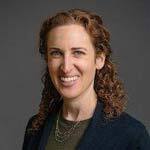
Dr. Meredith Ringel Morris is an affiliate professor in the Paul G. Allen School of Computer Science and Engineering and in the Information School at the University of Washington, where she participates in the dub research consortium.
Dr. Morris is also a principal researcher and research manager for the ability research group at Microsoft Research. As a leading computer scientist, she conducts research in the areas of human-computer interaction (HCI), computer-supported cooperative work (CSCW), social computing, and accessibility. She is an internationally-recognized leader in HCI, particularly in collaborative and social computing and accessibility.
Widely known as the founder of the field of collaborative web search, Dr. Morris’ SearchTogether system inspired numerous researchers in HCI and Information Retrieval to pursue work in this area. Following this, she co-developed a myriad of collaborative search prototypes and interaction techniques, aimed at supporting different search tasks, group configurations, and technologies.
Her current research interests center around accessibility, particularly at the intersection of accessibility and social technologies, while previously, her research predominantly focused on social and collaborative web search. She has also studied other classes of collaboration technologies, including gesture systems and tabletop computing systems.

Dr. Andrew Ng is founder & CEO of Landing AI, founder of deeplearning.ai, co-chairman and co-founder of Coursera, and an adjunct professor at Stanford University. Dr. Ng previously served as chief scientist at Baidu Inc., as well as founder and lead for the Google Brain Project.
In 2011, he led the development of Stanford University’s main MOOC (Massive Open Online Courses) platform and taught an online machine learning class to more than 100,000 students, which led to the founding of Coursera.
His main goal is to provide people globally access to a great education, for free. Today, Coursera partners with some of the top universities in the world to offer high-quality online courses, and is the largest MOOC platform in the world.
Additionally, Dr. Ng work has made significant contributions in the areas of machine learning with an emphasis on deep learning. He founded and led the “Google Brain'' project, which developed massive-scale deep learning algorithms. This resulted in the famous “Google cat” result, in which a massive neural network with one billion parameters learned from unlabeled YouTube videos to detect cats. More recently, he continues to work on deep learning and its applications to computer vision and speech, including such applications as autonomous driving.
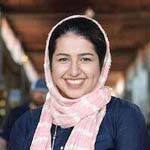
Assistant professor at the School of Information at UC Berkeley, Dr. Niloufar Salehi’s research interests focus on social computing, technologically mediated collective action, digital labor, and more broadly, human-computer-interaction (HCI).
Dr. Salehi’s work has been published and received awards in premier venues in HCI including ACM CHI and CSCW. Her research contributes to the design of alternative social configurations online through creating computational social systems in collaboration with existing communities, controlled experiments, and ethnographic fieldwork.
Some of Dr. Saheli’s recent, award-winning publications include:
- “Random, Messy, Funny, Raw: Finstas as Intimate Reconfigurations of Social Media”
- “Feminist Data Manifest-No”
- “Agent, Gatekeeper, Drug Dealer: How Content Creators Craft Algorithmic Personas”
- “Hive: Collective Design Through Network Rotation”